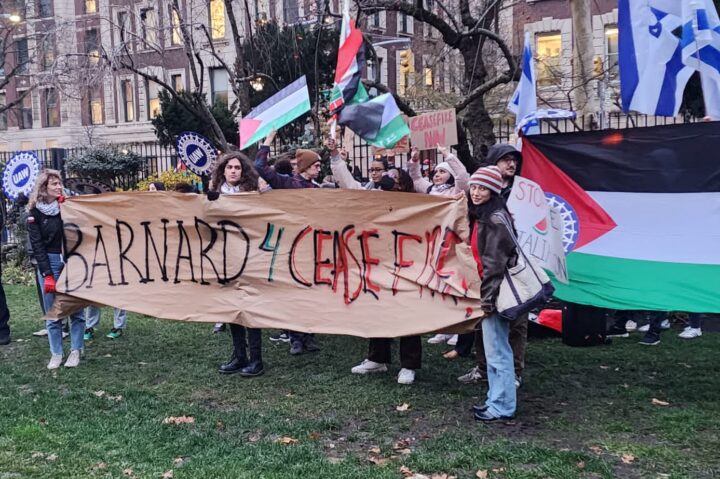campus beat
Controversial pro-Palestinian group resumes anti-Israel protests after campus suspensions
Rutgers, Columbia and GW are taking different approaches dealing with Students for Justice in Palestine in new semester

Alon Levin
Columbia SJP protest, Barnard campus, Dec. 11, 2023
Heading back to school after winter break, Rutgers University students discovered that the campus’ chapter of Students for Justice in Palestine was reinstated from its suspension and allowed to continue its on-campus protests, though the group remains on probation...










































